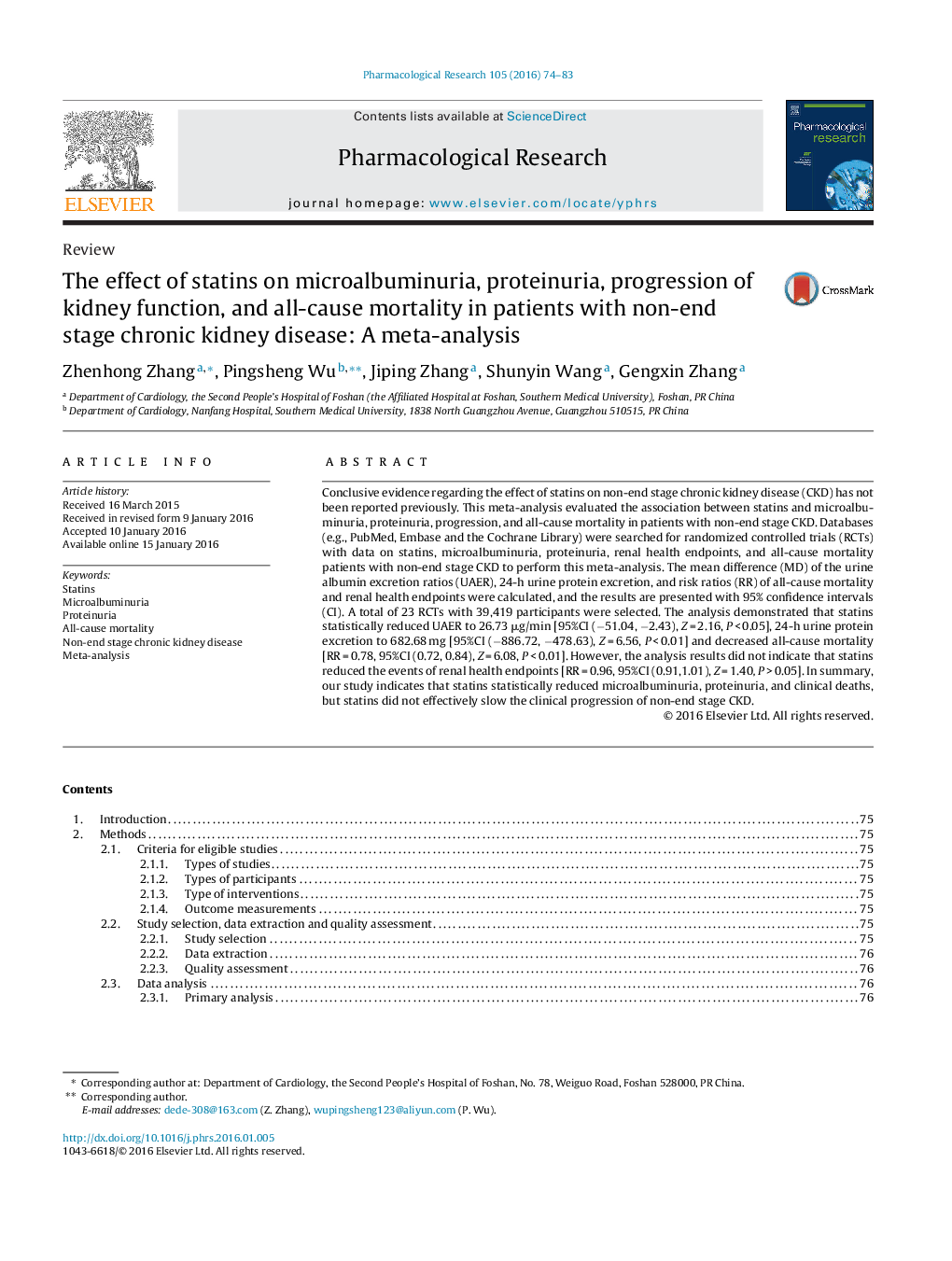| Article ID | Journal | Published Year | Pages | File Type |
|---|---|---|---|---|
| 2562035 | Pharmacological Research | 2016 | 10 Pages |
Conclusive evidence regarding the effect of statins on non-end stage chronic kidney disease (CKD) has not been reported previously. This meta-analysis evaluated the association between statins and microalbuminuria, proteinuria, progression, and all-cause mortality in patients with non-end stage CKD. Databases (e.g., PubMed, Embase and the Cochrane Library) were searched for randomized controlled trials (RCTs) with data on statins, microalbuminuria, proteinuria, renal health endpoints, and all-cause mortality patients with non-end stage CKD to perform this meta-analysis. The mean difference (MD) of the urine albumin excretion ratios (UAER), 24-h urine protein excretion, and risk ratios (RR) of all-cause mortality and renal health endpoints were calculated, and the results are presented with 95% confidence intervals (CI). A total of 23 RCTs with 39,419 participants were selected. The analysis demonstrated that statins statistically reduced UAER to 26.73 μg/min [95%CI (−51.04, −2.43), Z = 2.16, P < 0.05], 24-h urine protein excretion to 682.68 mg [95%CI (−886.72, −478.63), Z = 6.56, P < 0.01] and decreased all-cause mortality [RR = 0.78, 95%CI (0.72, 0.84), Z = 6.08, P < 0.01]. However, the analysis results did not indicate that statins reduced the events of renal health endpoints [RR = 0.96, 95%CI (0.91,1.01), Z = 1.40, P > 0.05]. In summary, our study indicates that statins statistically reduced microalbuminuria, proteinuria, and clinical deaths, but statins did not effectively slow the clinical progression of non-end stage CKD.
Graphical abstractFigure optionsDownload full-size imageDownload high-quality image (210 K)Download as PowerPoint slide
